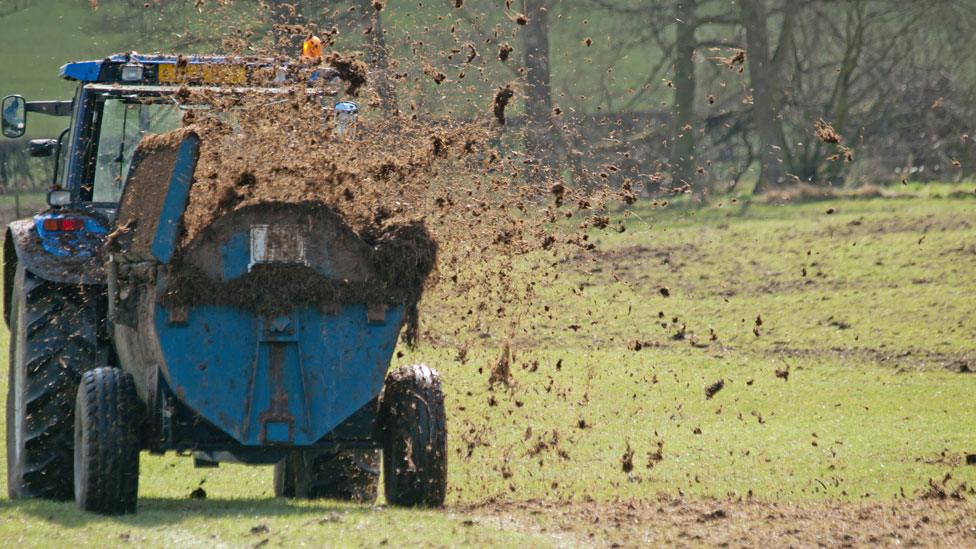Natural Resources Wales changes 'compromise environment'
- Published
- comments
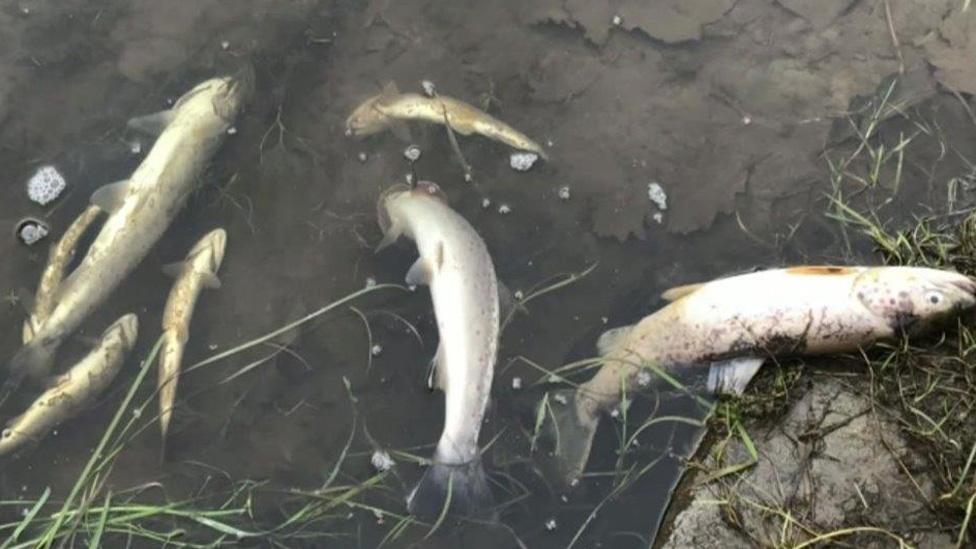
Staff were 'strongly opposed' to the reorganisation - some said it could lead to a rise in pollution incidents
Wales' environment could be "severely compromised" by plans to reorganise the agency responsible for its protection, staff have warned.
The claims were made in an internal Natural Resources Wales (NRW) staff consultation report leaked to the BBC.
Bosses were told the proposed changes were "not fit for purpose" and that staff morale was at an all-time low.
NRW said it had listened to employee feedback and revised its proposals, external.
But staff at the regulator have since contacted BBC Wales, and one manager described the situation as a "mess".
The Welsh Government said employment policies were a matter for NRW.
NRW is Wales' biggest quango, in charge of everything from protecting habitats and wildlife, monitoring water quality and flood risk to regulating power stations and waste processing sites.
Chief executive Clare Pillman told BBC Wales it was a "really difficult time for the organisation", but insisted the restructure - dubbed Organisation Design - was necessary to adapt to new Welsh legislation and ensure NRW could work within budget.
What did staff think?
In August, almost two-thirds of NRW's 2,007 staff responded to the online employee consultation on the changes, set for April 2019.
A report by consultants a month later found 62% of staff agreed there was a need for change but they were "strongly opposed" to the plans and highly critical of the process. , external
One group focused on conservation in south Wales warned it could lead to "catastrophic" failure and predicted pollution incidents and biodiversity loss would increase.
They said proposed officer numbers were so low the new teams would "struggle to maintain basic regulatory duties".
The leaked report also includes staff concerns that:
The new structure would not allow them to provide "a suitable service for the people and environment of Wales"
Expertise would be spread too thinly, with "increasing gaps in knowledge" and fears the new teams would be "jack of all trades and master of none"
Others spoke of high stress levels, with one warning employees felt "undervalued and worthless"; another branded the situation "soul-destroying".
Why is NRW making changes?
NRW was formed in 2013 when three organisations with different responsibilities were merged.
The idea was to manage the environment in a more joined-up way and deliver £158m of savings over the course of a decade.
It was described as a "challenging" transition by its former chief executive, and the organisation has faced years of difficult headlines - most recently over a timber-selling scandal that led to the resignation of its chair.
Meanwhile, new laws - including the Wellbeing of Future Generations, external and Environment (Wales), external Acts - have added to its responsibilities.
NRW claimed some departments were still operating as "functional silos" and said the planned changes would ensure a more organised approach and make it more sustainable for the future.
What was proposed?
Staff would be expected to work in large "multi-skilled" teams, delivering services in six geographical areas of Wales. This would mean, for example, experts in forestry, wildlife or water quality all working together in each area.
A seventh team would look after the marine environment.
NRW has insisted the new roles would not be "generalists" but staff could be required to take on a broader range of responsibilities.
The restructure means about 100 senior staff would lose line management responsibilities, and if they do not match new job roles they face a competitive selection process.
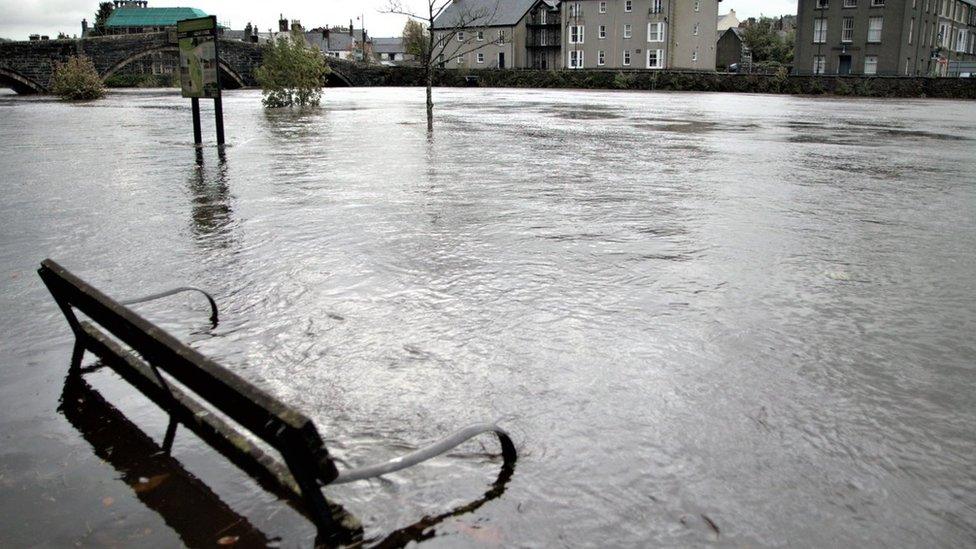
NRW has revised its plans for flood-risk teams after hearing of staff's "overwhelming concern"
Has the staff consultation changed anything?
NRW said it had given "full and thoughtful consideration" to staff feedback and had agreed some changes.
These include keeping flood-risk workers as two distinct teams - one based in north Wales, the other in the south - following "overwhelming" concern they would not be able to tackle flooding adequately if they were split across six areas.
The watchdog also said 30 temporary posts for front-line conservation jobs had been made permanent.
What do employees think now?
Despite the revisions, several NRW staff have told BBC Wales of ongoing concerns.
One manager, who agreed to speak anonymously, described the situation as a "mess".
He said there was "a very large risk the organisation would no longer have the right people in the right places".
"There's a huge amount of anxiety, grown men in tears."
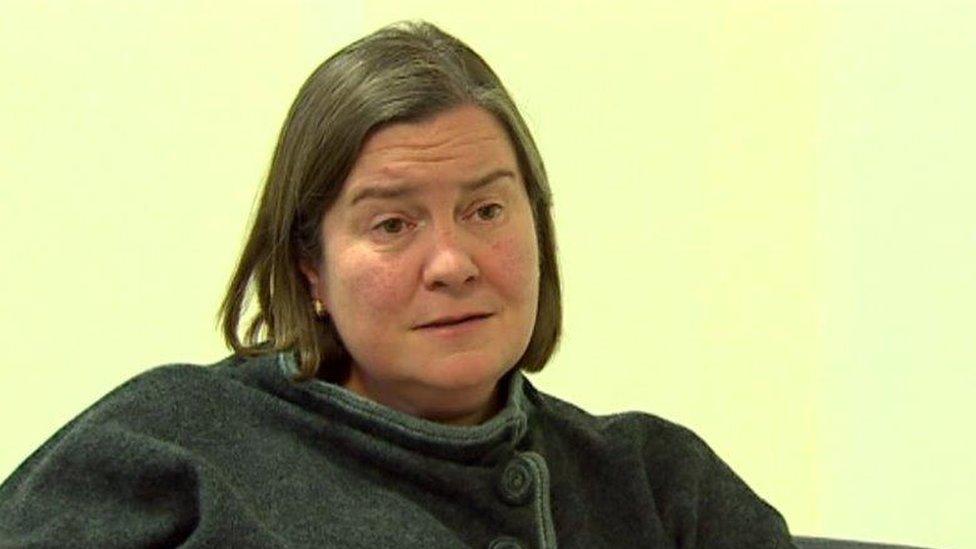
NRW chief executive Clare Pillman admitted she was worried about low morale among staff
What does the head of NRW think?
Clare Pillman said she had been pleased to receive "good, honest, open feedback from staff".
"This is an organisational change from the top of the structure all the way through, and that creates uncertainty and challenges for people."
She added: "It's now my responsibility to get a good structure that we can afford and delivers against our legislative requirements."
What has political reaction been?
Llyr Gruffydd AM, Plaid Cymru's environment spokesman, said there was a danger NRW would "grind to a dysfunctional halt" without more money from Welsh Government.
"It's come to a point now that no amount of internal re-jigging or moving the deckchairs is going to be able to address this effectively - it's a miracle staff are delivering as much as they are currently."
Conservative environment spokesman Andrew RT Davies said it was time to admit the merger had failed, adding: "The minister must now listen to these latest concerns from staff, take action and go back to the drawing board as NRW is no longer fit for purpose."
The Welsh Government said its contribution to NRW's budget for 2017-18 was £118m and it was confident it had adequate resources to "fulfil its important role in protecting and enhancing our environment".
It said it had "full confidence" in the chief executive and recently appointed interim chairman.
- Published14 December 2017
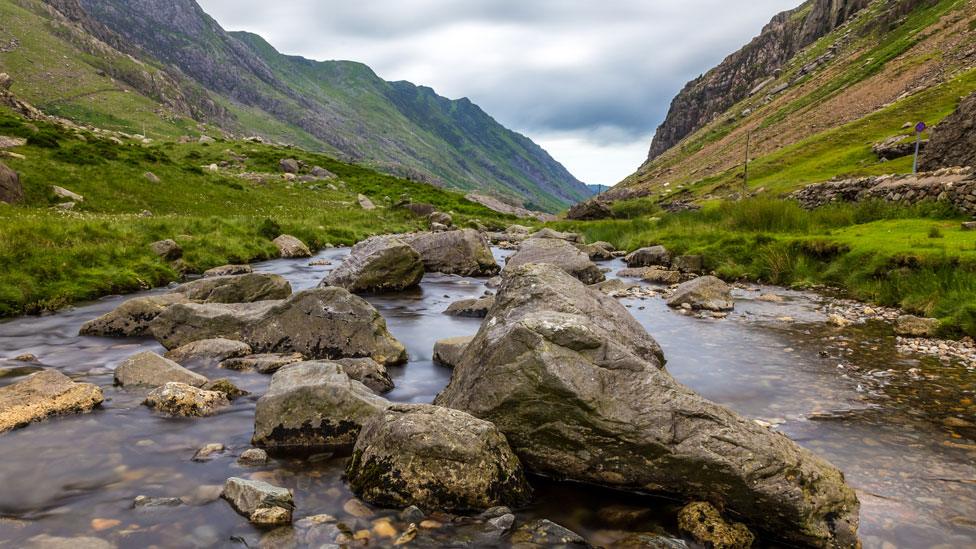
- Published24 September 2018
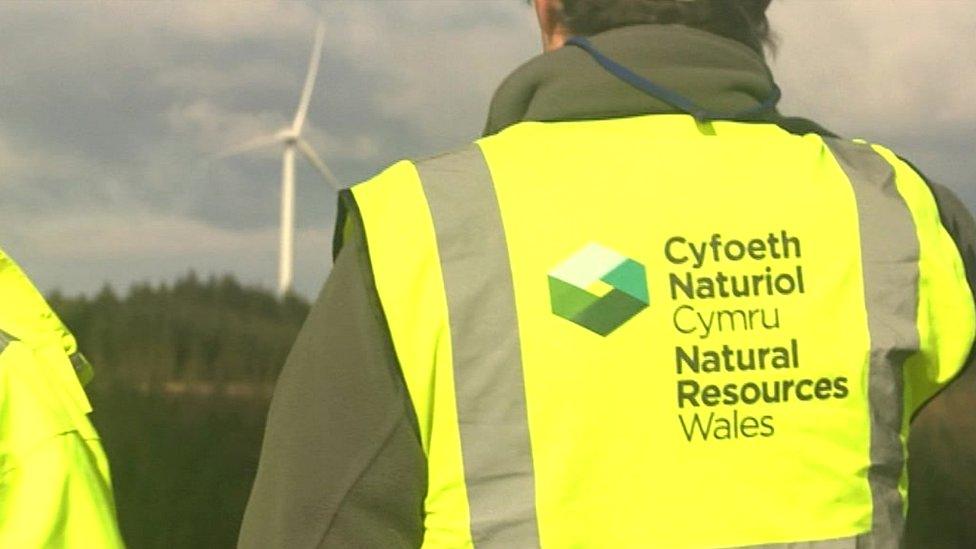
- Published14 November 2018
